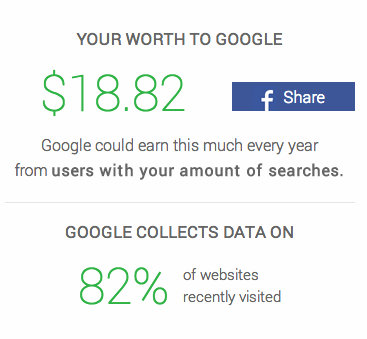A medium that is able to analyze the thoughts you put out into the world constitutes as data tracking. Sometimes this is beneficial. By tracking the data of individuals, the government is able to track down the mood of the nation. Also, it is able to find individuals who are planning to threaten the peace. But because data can be utilized to threaten society, privacy rights where established in an attempt to set boundaries and diminish problems. Then, through the development of various programs, data reading applications were born. These apps such as PrivacyFix, Wolfram, and Tweet Report, synthesize our data in order to show us our Internet footprint. These types of apps are quantified as data tracking due to their nature of grasping our information and regurgitating it back to us in more simplistic forms. Regardless of whether this sounds creepy or not, we allowed them to go into our history in order to bring back to our present the data trends we put out into the internet. In retrospect, this can be considered type of way humans think alongside technology, since without our help, technology wouldn’t have had the ability to create this. In other words, technology needs us as much as we need technology. Through these types of experiences we are able to see on a broader perspective, how we present ourselves to the world through the Internet. A great example is the amount Privacy Fix calculates in order to show us how much we are worth to companies like Facebook. Clearly, such companies are making revenue from our activity, but we as well benefit from their functions. Those 18 dollars Facebook makes through my activity may seem insignificant, but considering they possess a large audience, it is clear how it became a multimillion-dollar company. Thinking about the way we affect data and how data affects us provides us with more awareness of the way we affect this multidimensional cyberspace filled with an almost infinite amount of information.
